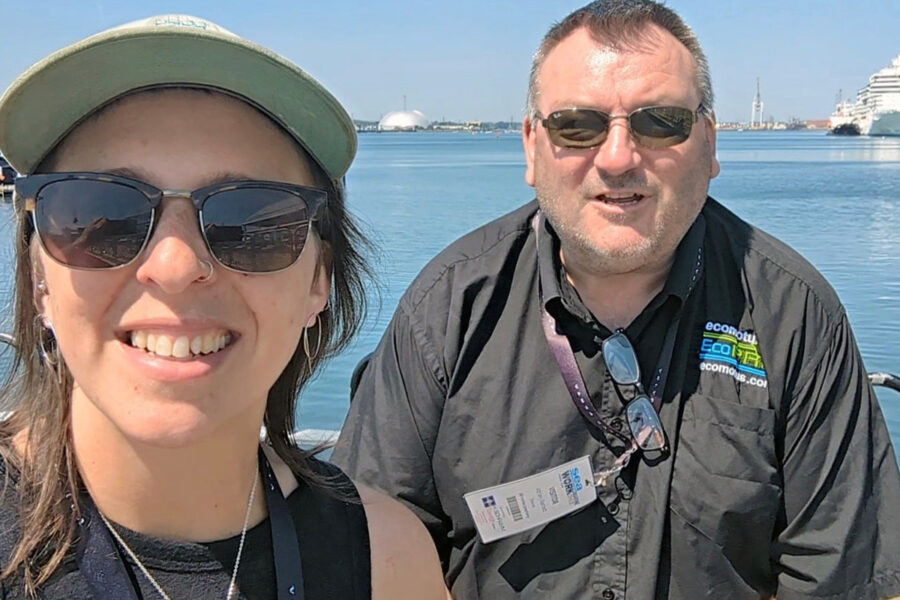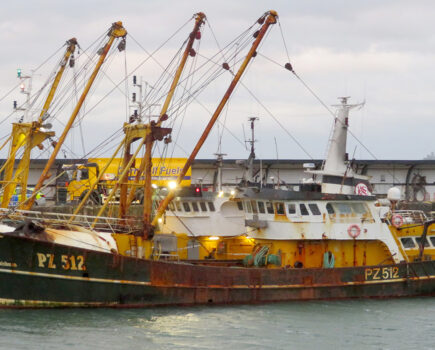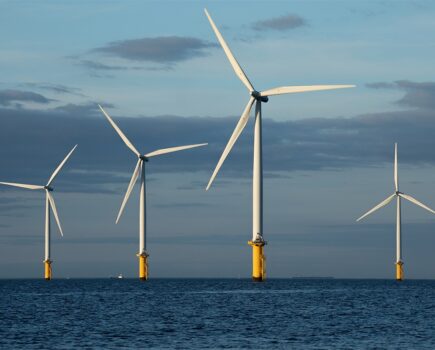“Our secret ingredient is building authentic human connections. Seeing each other as people and not a job title creates a foundation for better conversations around fisheries management,” Bournemouth-based Emma Plotnek, executive director of Fishing into the Future (FITF), told Fishing News.
FITF is a UK-wide charity built and guided by fishermen, for fishermen. “We bring together fishermen, scientists and fisheries managers, and other stakeholders involved in decision-making and fisheries research, and help them to share knowledge and create connections.
“We also build the knowledge and confidence in fishermen to be able to engage in fisheries management and science, and vice versa. We support policy-makers and researchers to understand and connect with the industry, with the final goal of creating sustainable and prosperous fisheries.”
Emma’s journey into the industry began at Newcastle University, where she studied marine science. “I was lucky, and able to get to sea regularly with two ex-fishermen on the university research vessel – and that’s where I started getting really interested in fishing.”
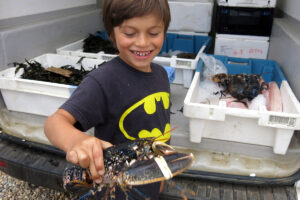
Emma’s unofficial assistant, son Marlon. “I’m a single parent, so I’m juggling a work-from-home job with running a household and being a mum. Marlon has come with me to ports, meetings and occasionally workshops. He came to Aberystwyth, where I presented to the Marine Biological Association. He was happily playing under a table while I spoke to a room of 80 people. Most of the fishermen I work with have met him. The reality- check of juggling work and parenting helps me connect with people, plus he always has a million questions about boats – and we all know fishermen love talking about their boats!”
After graduating, Emma spent time working in Chile before returning to the UK to study for a master’s degree – which took her to Southampton, Bilbao and Bordeaux, before going back to Chile to complete her thesis.
“I fell in love with Chile,” said Emma of a country which became her home for around a decade. “I’m relatively new to the UK industry, but I’ve worked in fishing for a long time. I think the management problems, the science and the social issues fishermen face are very similar worldwide.
“In Chile I witnessed fisheries managers, scientists and fishermen all sit round the table to work in collaboration on policy and management plans, but it lacked mutual dialogue and understanding between everyone in the room. I often saw fists being banged on tables and people storming out of meetings, and not getting anywhere. I couldn’t help thinking that there must be a better way.
“When the opportunity with FITF came up, it grabbed my attention. It forms the foundation so everyone can sit round a table and engage in co-management scenarios. Our role is to prepare everyone for those scenarios, because if you’re not prepared, they’re not going to work.”
As the charity’s only full-time employee, Emma’s role encompasses a wide range of tasts, and when FN caught up with her, she had just returned from Newhaven.
“The University of Gloucestershire, which is co-designing a social survey with the industry, was running a workshop in Newhaven. They brought us onboard to feed into the project and help facilitate the workshops.
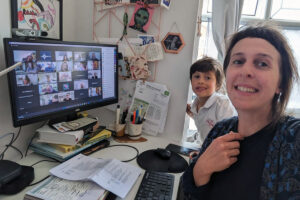
Emma also organises the ‘FITF Talks’. Hosted by a fisherman trustee, these online sessions discuss an important topic suggested by the industry. “The aim is to share knowledge, inform and connect people. In this episode we were discussing net zero and progress in the industry to reduce carbon emissions. I do all the work beforehand to set it up, so I can sit back and manage the session while keeping an eye on Marlon, and dealing with any messages from fishermen experiencing issues in getting connected.”
“We got a fisherman facilitator involved from the local community, Neil Witney, who is one of our trustees. He spread the word locally that the event was happening, and also helped facilitate the workshop.
“That’s something we champion, as it provides local knowledge, context, connections – and sometimes very important sense-check on ideas coming from research teams or policy-makers. Those attending see one of their peers, who can vouch for the project or initiative and say: ‘Hey, this is something important, I’m involved, so you should be too.’”
Whilst in Newhaven, an encounter with The Seafarers’ Charity provided Emma – who also looks after FITF’s social media channels and the dedicated industry website fishingportal.co.uk – with an opportunity for some content.
“The Seafarers’ Charity and the SeaFit Programme were in Newhaven with the dental charity Dentaid. I uploaded a picture on our social media with the dates the Dentaid van is visiting ports around the UK. It’s really important that people in the fishing industry know that services like this are available. It’s about basic needs – if people have toothache, how can we expect them to attend a meeting about fisheries management?”
On the drive home, Emma called in at the Seawork Marine Exhibition in Southampton to meet up with Adrian Bartlett, vice-chair of FITF. “We’re planning for two residential events to support fisheries management and science. They are going to be a big deal – we have one this coming November on the south coast and another on the east coast in early 2024.
“The idea is to bring together fishermen, scientists and people from government to share knowledge and build trust for a few days, with the outcome that after this experience they’re all more prepared to engage in Fisheries Management Plans.”
Back home, Emma’s attention turns to a wide range of administrative tasks. “I have to make sure our charitable finances are straight, organise a board of trustees, who all give their time voluntarily while running seafood and fishing businesses, update social media and the website, and even do a bit of IT and bookkeeping, as well as answering emails and calls.
“I also need to ensure that I’m constantly talking about the importance of co-management, connecting people, and trying to make sure we keep the momentum in all our charitable activities and aims. It’s a super-varied job.”
It’s also a job that Emma truly enjoys. “It’s the human aspect I enjoy more than anything – chatting to people and helping them navigate the complex scenario of fisheries science and fisheries management, and helping them get the skills or confidence or connections to be able to meaningfully make an improvement.”
This story was taken from the latest issue of Fishing News. For more up-to-date and in-depth reports on the UK and Irish commercial fishing sector, subscribe to Fishing News here or buy the latest single issue for just £3.30 here.
Sign up to Fishing News’ FREE e-newsletter here.

